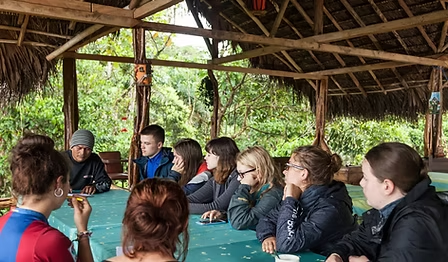1. Kindly give our readers an introduction to your business.
Montana Trout Hunters is a precision-guided fly-fishing outfitting company founded in 2016 by Darrel DeLeon. We operate on the Missouri and Madison Rivers in Montana, and also offer hosted trips to Alaska, Puerto Rico, Mexico and other international destinations. Our mission is to teach anglers of all skill levels—from first-time casters to veterans—through a curriculum-driven, veteran-led approach. Although we do not maintain multiple offices, our services extend to Montana’s top waters and beyond.
2. Kindly give us a brief description about yourself.
I’m a U.S. Army and Air Force veteran with 26 years of military service, I have 24 years of formal teaching Experience including graduate-level aerospace and advanced space studies. After transitioning from educating engineers, I combined my passion for precision instruction with a love of fly fishing to start Montana Trout Hunters.
Major achievements include:
– Earning multiple decorations for heroism, leadership and instructional excellence in the military.
– Translating aerospace-grade curriculum design into on-the-water fly-fishing instruction.
– Building a five-star reputation with immersive, educational fishing trips for families, veterans, and first-timers.
3. What inspired you to start a new business venture?
After retiring from the Air Force, I realized guiding was an extension of teaching. Fly fishing requires patience, clear communication, and a structured curriculum—parallels to my instructional background. Recognizing a gap for a veteran-led, instruction-focused guide service, I formalized those river experiences into Montana Trout Hunters.
4. What three pieces of advice would you give to budding entrepreneurs?
1. Build Around Your Strengths: Leverage specialized expertise (military leadership, teaching, technical skills) to differentiate your offering.
2. Listen to Your Community: Early clients are your best product-development advisors—ask for feedback and iterate quickly.
3. Maintain Ethical Foundations: Credibility matters—deliver consistent quality and honor conservation principles.
5. What would you say are the top three skills needed to be a successful entrepreneur?
1. Discipline: Consistency in follow-through and process is critical.
2. Adaptability: Markets and conditions (weather, seasonality) change rapidly—pivot without losing focus on your mission.
3. Communication: Clear, concise communication drives results and builds relationships.
6. How many hours do you work a day on average?
During peak season (April–October), I typically work 12–16 hours daily—guiding trips, maintaining gear, and handling admin tasks. Off-season months are around 6–8 hours per day, focusing on marketing, SEO, and continued education.
7. To what do you most attribute your success?
Combining military-grade discipline with a passion for teaching. Treating each trip as a structured learning experience has built a loyal client base and strong word-of-mouth. Upholding ethical practices has also fostered trust within Montana’s conservation community.
8. How do you go about marketing your business? What has been your most successful form of marketing?
We employ a multi-pronged approach:■- SEO & Content Marketing: Blog posts drive organic traffic.■- Social Media & AI-Power
9. Where did your organization’s funding/capital come from?
Montana Trout Hunters is self-funded. I invested earnings from teaching and consulting into equipment, website development, and guiding gear. Low overhead meant no outside investors were needed. Early profits were reinvested into marketing and conservation partnerships to scale sustainably.
10. What is the best way to achieve long-term success?
Continuous improvement and client trust. We update curriculum each season, refine teaching methods, and invest in new guiding technology. Upholding conservation ethics ensures the rivers remain healthy, which is crucial to our viability.
11. Where do you see yourself and your business in 5–10 years?
In five years, Montana Trout Hunters will be the premier education-focused outfitter on the Missouri and Madison Rivers, with an expanded team of veteran-led guides. In ten years, we’ll run a fully integrated fly-fishing academy—online and on-river—shaping future stewards and anglers.
12. Excluding yours, what company or business do you admire the most?
I admire Yellow Dog Fly Fishing for their commitment to conservation, industry leading booking service with extreme thought into every aspect of their business and they continue to expand as they see shortfalls in the industry. Their blend of eco-stewardship, professional personnel, and digital outreach sets an industry benchmark.
Recommended Questions:
1. How important have good employees been to your success?
Extremely important. I rely on full time guides who share my values—discipline, attention to detail, and conservation ethics—ensuring consistent quality.
2. How long do you stick with an idea before giving up?
I stick with an idea as long as it aligns with our core mission and data supports it. Persistence paired with measurable results drives every iteration.
3. What motivates you?
Helping clients in their pursuits. Whether it is catching their first fish or seeking a personal best. Most of my clients don’t have time to master fly fishing by themselves and rely on professionals to help them along the way. I have guided over 100 people to their first fish in their life and over 500 people to their first fish on a fly rod.
4. What are your ideals?
Authenticity, stewardship, integrity and empowerment—ensuring every trip reinforces our brand of providing an unforgettable experience and protect the resource.
5. How do you generate new ideas?
By staying on the river year-round and soliciting feedback after every trip—observing conditions, testing new casting techniques and perfecting fly presentations.
6. How do you define success?
When clients return and refer friends, demonstrate improved skills, and the river’s wild trout populations remain robust.
7. How do you build a successful customer base?
By over-delivering on every trip: integrity, punctuality, thorough preparation, personalized instruction, and ethical practices.
8. What is your favorite aspect of being an entrepreneur?
Watching a concept evolve into something tangible and seeing guides I’ve trained deliver high-quality, educational trips.
9. What has been your most satisfying moment in business?
Listening to my clients relive their amazing experiences year after year and promoting me to everyone they meet. When people brag about you without solicitation you know you had a profound impact on their experience.
10. What do you feel is the major difference between entrepreneurs and those who work for someone else?
Entrepreneurs embrace uncertainty and take full responsibility for outcomes, requiring continuous learning and adaptation.
11. What kind of culture exists in your organization? How did you establish this tone?
Our culture is collaborative, disciplined, and conservation-minded. We hire veteran guides and provide uniform training to ensure everyone shares the same instructional language and conservation ethos.
12. In one word, characterize your life as an entrepreneur.
Fulfilled.
Optional Questions:
1. If you had the chance to start your career over again, what would you do differently?
Invest earlier in digital marketing and SEO to accelerate growth.
2. How has being an entrepreneur affected your family life?
I’ve learned to structure downtime intentionally so I can be present with my wife and four children.
3. What is your greatest fear, and how do you manage fear?
Fear of overextending and compromising quality. I manage it with strict operational processes and by limiting daily trip counts.
4. Do you believe there is some sort of pattern to becoming a successful entrepreneur?
Identify a genuine need, test hypotheses quickly, invest in a strong core team, and focus on customer experiences.


